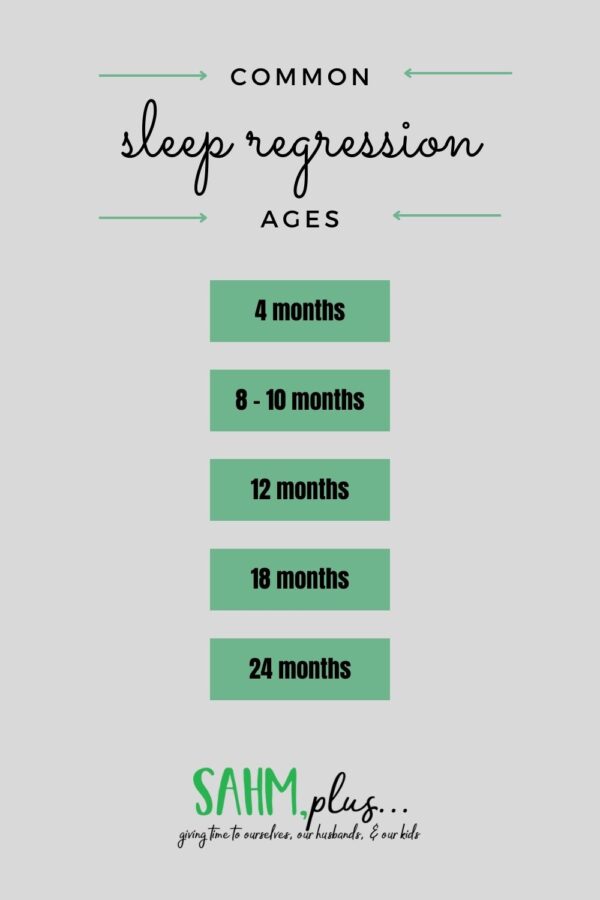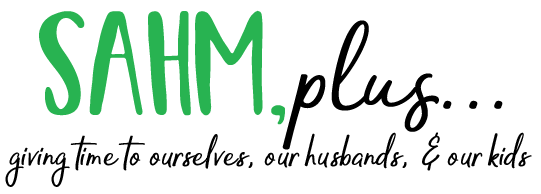If you don’t want to be caught off-guard when a sleep regression is on the horizon, you’ll appreciate knowing the most common sleep regression ages in your baby’s first year (or year and a half).
As a parent, there are few things more frustrating than feeling like you have finally found a routine that works for your baby, only to have everything suddenly fall apart. One of the most common challenges parents face is sleep regression. This is when your baby, who previously slept well, suddenly starts waking up more frequently or having difficulty falling asleep. While this can be a frustrating experience, it is a completely normal part of your baby’s development.
In this article, we will discuss the ages at which sleep regression commonly occurs, how to identify when your baby is going through a sleep regression, and which sleep regressions tend to be the most challenging for parents.

Do All Babies Have Sleep Regressions?
It is important to understand that sleep regression is a common part of a baby’s development. While not all babies experience sleep regression, the majority do. Sleep regression can happen at different times for each baby, but it typically occurs around certain developmental milestones. If your baby is going through a sleep regression, it is important to remember that this is normal and temporary, and that things will eventually go back to normal.
Most Common Sleep Regression Ages
| Age Range | Developmental Milestones | Potential Sleep Disruptions |
|---|---|---|
| 4 Months | Mastered REM sleep cycle, Increased awareness of surroundings | More frequent waking at night, Difficulty falling asleep |
| 8-10 Months | Learning to crawl/walk, Transitioning to 2 naps | Nightmares, Early morning waking, Resistance to bedtime routines |
| 12 Months | Separation anxiety, Testing independence, Dropping a nap | More night wakings, Crying for reassurance, Early morning waking |
| 18 Months | Mastering walking/talking, Vivid imagination, Object attachment | Night terrors, Sleepwalking, Difficulty settling at bedtime |
| 2 Years | “Terrible twos”, Stubbornness, Resistance to bedtime routines | Bedtime battles, Tantrums, Nightmares |
| 3 Years | Potty training, Starting preschool, Social and emotional changes | Bedwetting, Fears and anxieties, Difficulty staying asleep |
Sleep regression tends to occur around certain ages when your baby is going through significant developmental milestones. The most common ages for sleep regression include:
4 Months Old: This is a common age for sleep regression to occur because your baby is going through significant changes in their sleep patterns. At around 4 months old, babies move from a deep sleep to a lighter sleep and can wake up more easily. They also may start teething, which can cause discomfort and disrupt sleep.
8-10 Months Old: This is another common age for sleep regression to occur. At this age, your baby is starting to become more mobile, which can lead to separation anxiety and difficulty falling asleep. They may also be going through a growth spurt, which can increase hunger and disrupt sleep.
12-18 Months Old: At this age, your baby is going through a significant developmental leap, including learning to walk and talk. This can cause disruptions in sleep as your baby is processing new skills and experiences.

Important notes:
- This is not an exhaustive list, and sleep regressions can occur at any age.
- Every child develops at their own pace, so these age ranges are not exact.
- The listed milestones may not all be present during a sleep regression.
- Sleep regressions are temporary with consistent bedtime routines and gentle reassurance.
How to Know Your Baby is Having a Sleep Regression
It can be challenging to know if your baby is going through a sleep regression or if there is another underlying issue. However, there are some signs to look out for that can help you identify if your baby is experiencing a sleep regression:
- Increased fussiness and irritability during the day
- Waking up more frequently at night
- Difficulty falling asleep or staying asleep
- Changes in appetite or feeding patterns
- Increased reliance on sleep aids, such as pacifiers or rocking
If you notice these signs, it is likely that your baby is going through a sleep regression.
What Are the Worst Sleep Regressions?
While all sleep regressions can be challenging for parents, there are a few that tend to be the most difficult. These include:
4-Month Sleep Regression: This is a challenging sleep regression for many parents because it often comes as a surprise. Your baby may have been sleeping well and suddenly start waking up frequently at night. This regression can last anywhere from a few weeks to a few months.
8-10 Month Sleep Regression: This sleep regression can be challenging because your baby is starting to become more mobile and may experience separation anxiety. This can lead to difficulty falling asleep and more night wakings.
18 Month Sleep Regression: This regression can be particularly challenging because your baby is going through significant developmental leaps, including learning to walk and talk. They may be processing new skills and experiences, which can disrupt their sleep patterns.
Sleep regression is a normal part of a baby’s development, and most babies will experience it at some point. By understanding the ages at which sleep regression is most common and knowing the signs to look for, we hope you’ll feel better prepared.
Continue reading our guide to sleep regressions:
- Sleep Regression: What is It and What to Expect
- 4 Signs of Sleep Regression to Watch For
- Sleep Regression Ages (this post)
- Why Does Sleep Regression Happen?
- How to Deal with Sleep Regression
FAQs About Sleep Regression Ages
How do I know if my baby is having a sleep regression?
Your great napper isn’t napping as well anymore or is unusually fussy. These are just a couple signs of sleep regression to watch out for.
What causes sleep regression?
A lack of or new routines can cause sleep regressions. But that’s not all. Find out why sleep regressions can happen here.
How do you break a baby sleep regression?
Most of the time, you’re going to have to ride it out, but ensuring that you don’t allow a sleep regression to cause unhealthy sleep habits, making sure to stick to routines and helping your baby learn to self-soothe are a few ways to deal with a sleep regression.
Do you let a baby cry it out during sleep regression?
Maybe, but not necessarily. If a sleep regression is due to illness, letting your baby cry may not be a good option. However, if a sleep regression isn’t due to underlying health issues, you and your baby may find it useful to do some sort of sleep training, even if it’s not a CIO method.

1 comment
It might be difficult to determine whether or not your infant is experiencing a sleep regression or whether there is another issue that is the root cause.
Comments are closed.